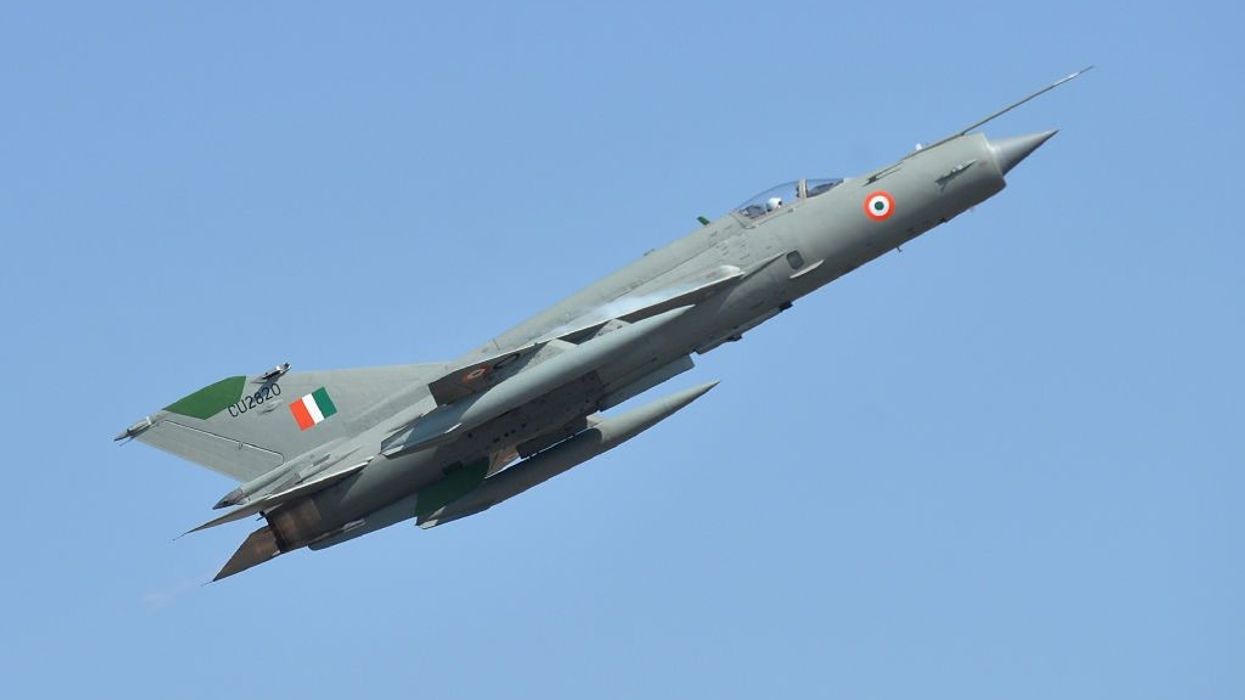Three people on the ground died in India on Monday (8) when a Russian-made MiG-21 military aircraft suffered an "onboard emergency" and obliterated a house, authorities said.
India's air force has seen a string of crashes in recent years, many of them linked to decades-old planes supplied by the former Soviet Union.
The MiG fighter jet crashed onto the house in the western state of Rajasthan and three villagers died, police officer Sudhir Chaudhary said.
The Indian Air Force (IAF) said that the pilot ejected safely and the accident happened shortly after take-off in a routine training sortie.
The pilot "experienced an onboard emergency, following which he attempted to recover the aircraft as per existing procedures," an IAF statement said.
"Having failed to do so, he initiated an ejection, sustaining minor injuries in the process," it said.
"The IAF regrets the loss of lives and offers its deepest condolences to the bereaved families. A Court of Inquiry has been constituted to ascertain the cause of the accident."
'Flying coffins'
The crash was the latest in a series of accidents suffered by the Indian military.
Last week, an Indian-made army helicopter with three people on board crashed in Jammu and Kashmir region.
In July 2022, two pilots were killed when a MiG-21 crashed in a training sortie in Rajasthan.
That crash was the sixth MiG-21 aircraft to have gone down since January 2021, with five pilots killed.
Russian-made MiG-21 jets first entered Indian service in the 1960s during the Cold War and for decades served as the backbone of the country's air force.
Numerous crashes in the past few decades have led to the planes being dubbed "flying coffins".
Two Indian Air Force fighter jets crashed in January, killing one pilot and injuring two others, in an apparent mid-air collision while on exercises south of New Delhi.
It involved a Russian-made Sukhoi Su-30 and a French-built Mirage 2000.
India's defence chief, General Bipin Rawat, was among 13 people killed when his Russian-made Mi-17 helicopter crashed while transporting him to an air force base in December 2021.
India is investing billions of dollars in modernising its military, an initiative motivated by its decades-old rivalry with Pakistan and increased tensions with China.
It has also sought to diversify away from Russia, with its air force buying dozens of French Rafale fighter jets.
New Delhi is also investing heavily in developing its own defence industry.
India opened its largest helicopter manufacturing plant in February, months after it unveiled its first locally made aircraft carrier and test-fired a ballistic missile from its maiden domestic nuclear-powered submarine.
At the same time it has been trying to sell more of its domestically produced hardware to other countries, particularly poorer nations unable to afford more expensive Western-made kit.
(AFP)
Three dead after MiG jet crashes in India
India’s air force has seen a string of crashes in recent years, many of them linked to decades-old planes supplied by the former Soviet Union




